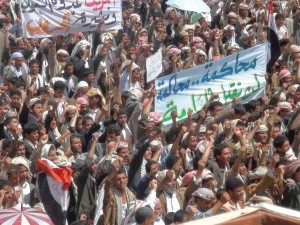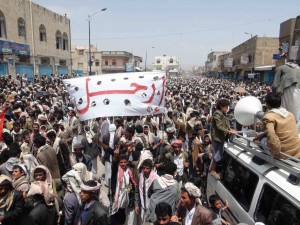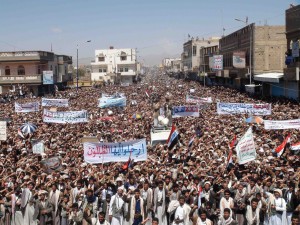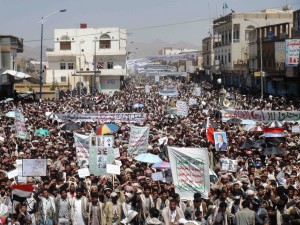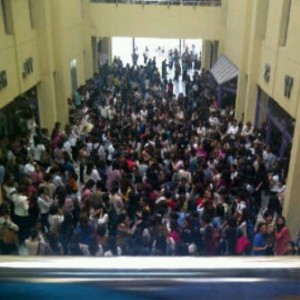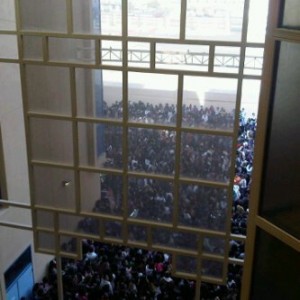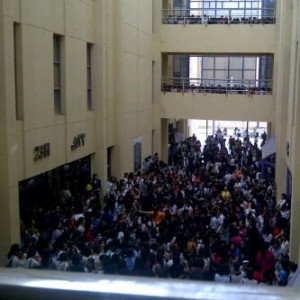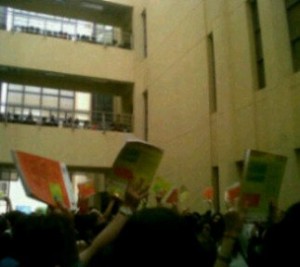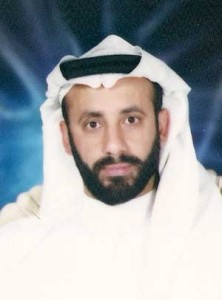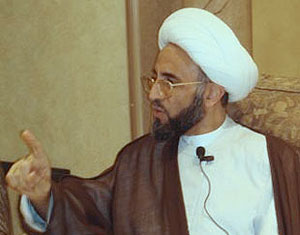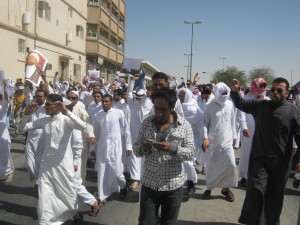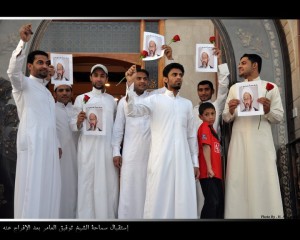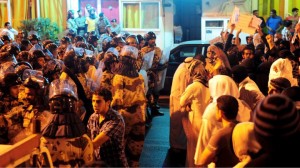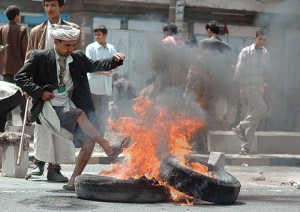
Nationwide protests demanding an end to the 32-year rule of President Ali Abdullah Saleh have entered their sixth week, but the Yemeni leader is refusing to step down until 2013. About 30 protesters have been killed and hundreds injured in clashes with government troops or Saleh supporters. Below is a timeline highlighting key events since the protests began:
2 February 2011: Thousands of Yemeni opposition supporters take to the streets of Sana’a, Aden and Taiz on the “First Day of Rage”, protesting against the government’s constitutional amendment allowing Saleh to run for another term. In a speech, Saleh promises not to run for president again or hand power to his son Ahmad, the Republican Guards’ commander. Saleh urges dialogue and engagement in “a national unity government”.
3 February: Tens of thousands of protesters in Sana’a on “Second Day of Rage” decry government corruption, and Saleh’s control of power and resources. Saleh again calls for dialogue with the opposition.
10 February: Thousands of Southern Movement (SM) supporters march in several parts of the south in protest at a military siege imposed by the government. They demand the release of all political prisoners detained for their involvement in SM, which is accused by the government of promoting secession.
11 February: Thousands of SM supporters staged protests in the southern cities of Aden, Abyan, Dhalea and Shabwa demanding Saleh leave power. Local NGO Yemen Human Rights Observatory (YHRO) says the government arrested at least 10 protesters. Egyptian President Hosni Mubarak resigns.
12 February: Thousands in Sana’a celebrate Mubarak’s downfall, call for Saleh’s ouster, but are confronted by pro-Saleh demonstrators in al-Tahrir Square. Thousands of university students head towards Egyptian embassy calling for an end to Saleh’s rule; two are injured after being attacked by Saleh supporters with daggers and sticks.
13 February: Tens of thousands rally in front of Sana’a University as well as in Liberty Square in Taiz. They are confronted by pro-government demonstrators in both cities. Government security forces arrest 120 protesters in Taiz, according to Yasser al-Maqtari, a human rights activist from Taiz.
15 February: Around 2,000 Saleh supporters, backed by undercover police, attack over 3,000 student protesters in front of Sana’a University, using sticks and electric batons, Khalid al-Ansi, executive director of the National Organization for Defending Human Rights and Freedoms (a local NGO know as HOOD), tells IRIN.
16 February: Around 500 protesters in Aden demand Saleh’s ouster. Two protesters killed in Sana’a.
17 February: At least 25 injured in clashes between pro- and anti-government protesters in front of Sana’a University.
18 February: Four killed, 11 injured when the authorities attempt to disperse thousands of protesters in Aden in a demonstration called “Friday of Start”. A local council building, police station and several police vehicles are set ablaze, Mohammed Salim, a riot police officer, tells IRIN from Aden. At least three killed and another 87 injured when a grenade is thrown at tens of thousands of protesters in Taiz’s Liberty Square. Ten injured in another protest staged in the southern city of Mukalla.
19 February: One protester killed and another 15 injured in clashes between police and anti-government demonstrators in front of Sana’a University. Another protester killed in Aden.
21 February: The Joint Meeting Parties (JMP), an opposition coalition, and Houthi followers in the north declare their support for the young protesters demanding Saleh’s ouster. Tens of thousands take to streets of Sa’dah, demanding same.
22 February: At least five students injured in clashes with Saleh supporters in front of Sana’a University.
23 February: Ten MPs resign from ruling General People’s Congress in protest at the government’s crackdown on protesters. Two protesters killed and 23 injured in Sana’a.
25 February: Hundreds of thousands of protesters stream onto the streets of Sana’a, Taiz, Ibb, Amran, Sa’dah, Aden, Dhalea, Mukalla, Lahj, Shabwa, Abyan, Dhamar, Marib, al-Jauf and Hodeida on the “Friday of Immovability”. At least 7 killed and dozens of others injured in Aden, according to HOOD.
26 February: Senior sheikhs from Yemen’s main tribes (Hashid and Bakil) declare their support for the protesters. “Saleh and his regime must leave now,” said Sheikh Fasail al-Dheli from the Hashid tribe. “How is it possible for a regime to reform things in two years after it failed to do so in more than three decades?” he asked.
27 February: Eight killed, 36 injured in Aden protests, raising death toll since 2 February to 26, according to YHRO.
1 March: Hundreds of thousands rally in most main cities to express solidarity with the families of protesters killed in Aden in a day named “Tuesday of Rage”. “Ending Saleh’s rule is the only option for us. We will not leave this place until Saleh steps down,” former MP Fuad Dihaba tells IRIN.
4 March: Two killed, six injured when army attacks anti-government protest in war-torn Harf Sufyan District, Amran Governorate.
6 March: Some 25 protesters injured in Ibb after being attacked by ruling party supporters.
8 March: Some 70-80 students injured and one killed after government troops fire at protesters in front of Sana’a University. “The troops used a toxic gas against the protesters,” said Hussein al-Shawjali, a volunteer neurologist at a mobile clinic providing medical services to protesters at the university. “Dozens are comatose or suffering spasms… Their lives are at high risk as we don’t have information about this toxic gas to prescribe the right serum for the victims,” al-Shawjali tells IRIN the following day. Sixty injured (20 of them police) in clashes between prison inmates and police in Sana’a central prison.
10 March: Saleh goes on TV to announce plans to change the constitution to move to a parliamentary system.



